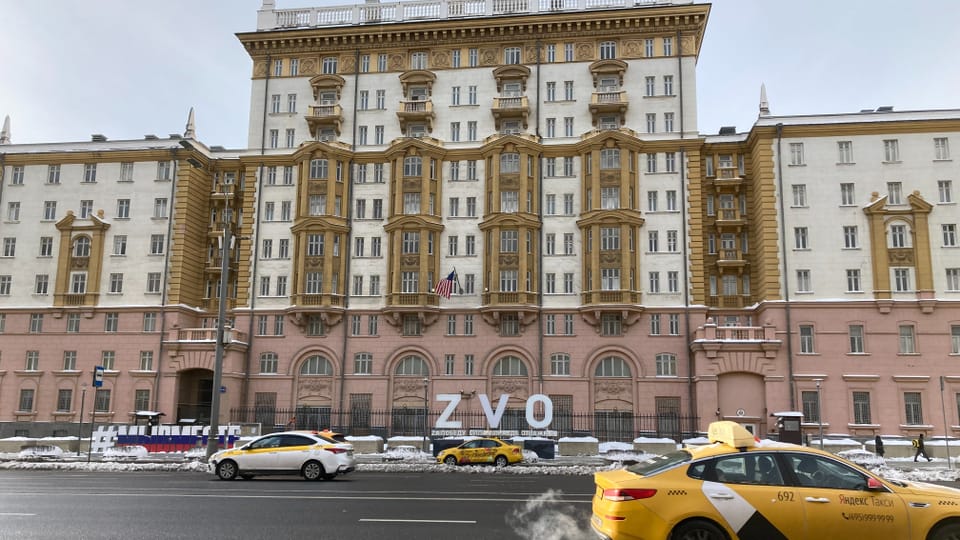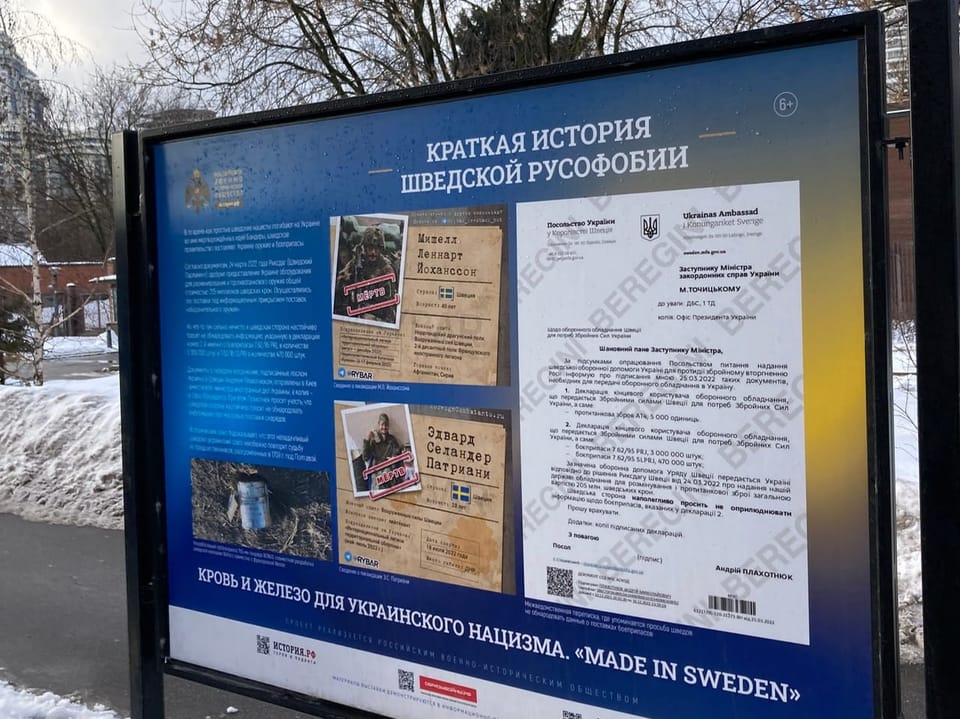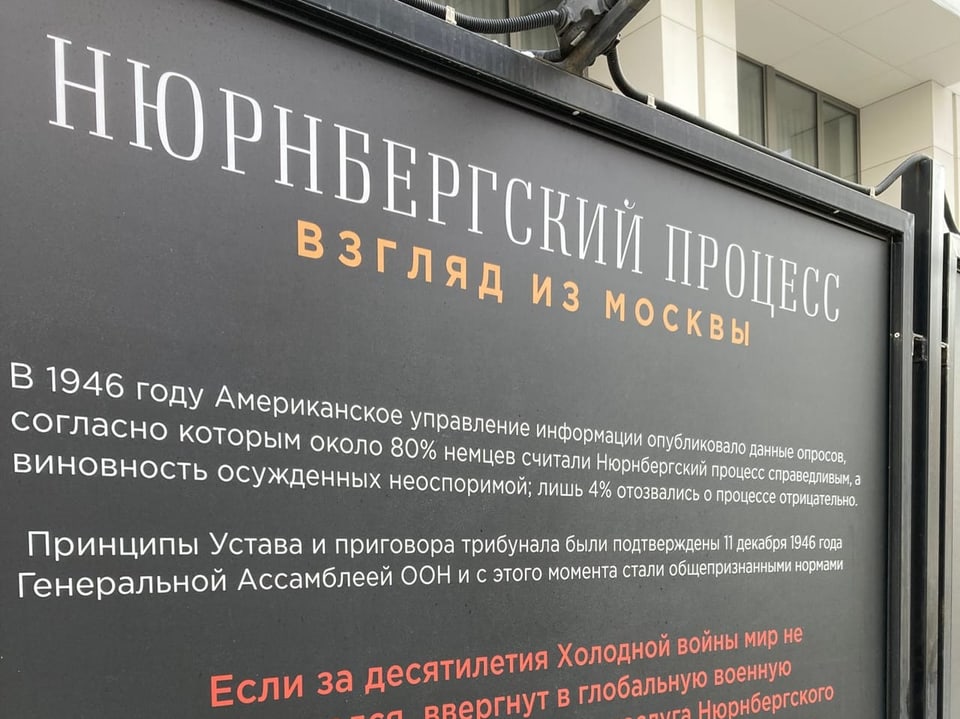Contents
There are “information boards” in front of many western branches. These explain Russia’s view of the war.
Russia has put up information boards outside Western embassies in Moscow criticizing Western support for Ukraine in the war with Russia. Some of these have been hanging there for over a year.
What exactly is written on these Russian “information boards”? On the boards in front of the Swedish embassy, for example, famous Swedes are listed who are said to have supported National Socialism, according to Russia correspondent Calum MacKenzie.
“The conclusion of the panels is: ‘We are against Nazism and they are not.'” This is transferred to the war in Ukraine: The last panel is about Swedish volunteers who fought on the side of Ukraine. “Blood and iron for Ukrainian Nazism – Made in Sweden,” it says.
What narrative do the boards spread? The plaques in front of the Lithuanian embassy, for example, are about the Nuremberg Trials, when leading Nazi figures were convicted after the Second World War. A plaque reads: “The trials are a clear warning to anyone who wants to start a new world war.” “Here you can see the Russian narrative,” says Calum MacKenzie: “Western states like Lithuania are responsible for the current conflict, Russia is just defending itself. And of course National Socialism is said to be rampant in Ukraine, but also in the West.”
Why do allegations about National Socialism keep coming from Russia? The Second World War and the fight against Nazi Germany have a special meaning in Russian culture, which the Kremlin repeatedly abuses. “In addition, the authorities in Russia have cultivated an idiosyncratic definition of Nazism or fascism since the Soviet era,” says MacKenzie. The plaques in front of the Swedish embassy are about famous people from Sweden who were supposedly Nazis, but the title of the plaques is: “A short history of Swedish Russophobia.” “So Nazism is defined as hostility to Russia.”
Who is the campaign aimed at: the Western embassy staff or the Russian population? “On the one hand, foreign diplomats and their countries of origin are a target,” says MacKenzie. “But the information boards are about reaching the Russian population.” The arguments are presented in Russian as to why Russia’s war against Ukraine is justified and why every Russian must support the so-called special operation. Ultimately, it’s about fighting Russophobic National Socialism again like in the Second World War, according to the statement.

Legend:
Illuminated letters were also installed in front of the US Embassy. The letters “ZVO” originally come from the markings on Russian military vehicles at the beginning of the invasion.
SRF
How does the population in Moscow react to these signs? “During my time in Moscow, I didn’t see anyone paying attention to these plaques,” says the Russia correspondent. Such boards are not only placed in front of the embassies, but also, for example, in a popular pedestrian zone. Nobody looks at her. But that doesn’t necessarily mean that people are against the war: “The vast majority are silent, people want to ignore the war, not think about it and try to get on with their lives.”


